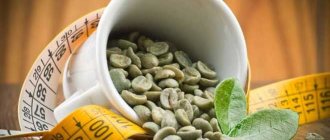858
How does drinking coffee affect your overall health? Coffee benefits and harms. There is a lot of controversy about this beloved drink. Is it good for health, can it be consumed if you have high blood pressure, can you drink coffee if you have type 2 diabetes . Scientists' research on this drink will be of interest not only to people with diabetes.
The debate about the benefits of drinking 3-4 cups of coffee a day has been going on for a long time. And even today it is not fully settled. But many studies persistently point to another positive aspect of drinking the black drink.
What is diabetes?
Diabetes is a disease that affects how your body processes glucose in the blood. Glucose, also known as blood sugar, fuels our brain and provides energy to our muscles and tissues.
If you have diabetes, it means there is too much glucose in your blood. This occurs when your body becomes insulin resistant and can no longer efficiently absorb glucose into your cells for energy. Excess blood glucose can cause serious health problems. There are a number of factors that can cause diabetes.
Diabetes can be chronic, gestational, and there is a variant of borderline diabetes, the so-called prediabetes. Chronic diabetes comes in two types—type 1 and type 2. Gestational diabetes occurs during pregnancy but tends to go away after birth. Prediabetes, sometimes called borderline diabetes, means your blood glucose levels are higher than normal but not so high that you are diagnosed with diabetes.
Signs and symptoms of diabetes include:
- increased thirst,
- unexplained weight loss,
- fatigue,
- irritability
If you think you have these symptoms, you should contact your doctor.
What you need to know...
... about instant coffee. Coffee prepared in the traditional way from beans roasted in a coffee maker has the full bouquet of taste qualities. And although instant coffee is clearly inferior in taste to natural coffee, in most cases it even exceeds it in tonic properties. This is due to the fact that, due to the nature of production, the caffeine content in most varieties of instant coffee is much higher than in natural ground coffee. In addition, the caffeine in instant coffee is eliminated from the body for several hours longer than natural caffeine.
...about decaffeinated coffee.
Unfortunately, most modern industrial decaffeination methods involve the use of various chemical solvents. This process includes several stages: after soaking the coffee beans in warm water, it is drained, and a chemical solvent is added to the coffee mass by pouring boiling water over it. The resulting dry coffee mass contains significantly less caffeine (up to 0.1%) and lacks the waxy layer that usually covers natural coffee beans. However, decaffeinated coffee usually retains the alkaloids it contains. By the way, caffeine is not completely removed.
Coffee and possible diabetes prevention
Harvard researchers conducted an experiment that followed more than 100,000 people over 20 years. They focused on a four-year period and their findings were later published in this 2014 study.
It found that people who increased their coffee consumption by more than one cup per day had an 11 percent lower risk of developing type 2 diabetes.
However, people who reduced their coffee consumption by one cup per day increased their risk of developing diabetes by 17 percent. There was no difference in who drank tea.
It is not clear why coffee has such an effect on the development of diabetes. Think caffeine? In fact, caffeine increases glucose and insulin levels in the short term.
In one small study of men, decaffeinated coffee even showed a dramatic increase in blood sugar levels. Currently, there is limited research and more research needs to be done on the effects of caffeine on diabetes.
Recommendations
If you still decide to drink an invigorating drink with such a severe endocrine disease, then use a number of useful tips.
- Drink natural coffee and avoid instant products.
- Do not forget to constantly monitor your sugar level with a glucometer, follow a diet, monitor your weight and do not shy away from physical activity.
- Drink drinks without additional additives such as heavy cream, sugar or syrups.
If your sugar levels are currently high, it's best to temporarily give up a cup of coffee. It is necessary to stabilize the condition of your body and bring high sugar levels back to normal.
If you notice that when drinking coffee, your sugar begins to rise, you also need to give up this habit and consult with a specialist, he will tell you the most optimal and individual answer to the current problem.
Caffeine, blood glucose and insulin (before and after meals)
One 2004 study found that taking a caffeine capsule before meals increased postmeal blood glucose levels in people with type 2 diabetes. It also showed an increase in insulin resistance.
According to a recent 2021 study, genes may play a role in caffeine metabolism and its effect on blood sugar levels. In this study, people who metabolized caffeine more slowly showed higher blood sugar levels than those who genetically metabolized caffeine faster.
Drinking caffeine over a long period of time can also change its effect on glucose and insulin sensitivity. Tolerance to long-term consumption may be responsible for the protective effect.
A more recent study in 2021 found that the long-term effects of caffeine may be associated with a reduced risk of prediabetes and diabetes.
Shop “MEDMAG” - products for diabetics
is a leading retailer of self-monitoring products and medical supplies for patients with diabetes in the Russian Federation. The company has more than ten years of experience in this market segment.
More details
If a patient has been diagnosed with type 1 or type 2 diabetes (or prediabetes), he should adjust his diet as quickly as possible. The menu is compiled taking into account nutritional value, calorie content, and the number of bread units. Dishes should be varied, quite tasty and healthy.
If you have diabetes of any type and stage of development, you need to monitor your diet every day. A properly selected diet not only prevents the disease from progressing, but also helps to cope with it. For example, in the early stages it is enough to adjust your diet and adhere to the established rules. Then you can be completely cured even without medications.
Diet therapy involves creating a balanced diet based on the optimal amount of essential nutrients (proteins, carbohydrates, fats) and total calories.
In this case, special indicators are also taken into account, for example, bread unit (XE). This is the name for a measure that reflects the total amount of carbohydrates in a particular food product. The mass of bread taken as 20-25 g per unit (in terms of pure carbohydrates is 10-12 g, i.e. half as much).
A person suffering from diabetes should consume a maximum of 25 bread units every day, i.e. no more than 250 g net carbohydrates. The permissible value is often less - it all depends on the type, stage of development of the disease, weight, age, general condition and the presence of physical activity.
Thus, to ensure proper nutrition it is necessary:
- Make a diet according to your doctor's recommendations.
- Develop a food menu for the week.
- Select products by quantity based on calorie content, nutritional value and bread units.
- Follow these rules strictly for a significant period of time.
- Include regular physical activity, which will also help reduce glucose levels.
Menu planning is the main task for a diabetic. We must assume that the maximum calorie content is 1800-2000 kcal per day. Based on this, the composition and quantity of products for each meal are selected.
Breakfast
For tomorrow you can prepare dishes from the following products:
- Benefits of making kvass yourself for diabetes
- rye bread (50 g) and butter (5-7 g);
- boiled chicken egg;
- milk glass (200 ml);
- porridge from any cereal (100 g).
Instead of porridge, you can include one of the following dishes:
cottage cheese with a moderate fat content of 4-5% (100 g);
- apple;
- plum;
- peach;
- apricot;
- any citrus (except lemon, lime).
The fruit should be of medium size - the weight in terms of pure pulp is about 100 g. Moreover, it is better to leave the fruit for an afternoon snack as a separate meal. Instead, you can use half a glass of milk (100 ml) for a snack.
Dinner
Lunch is the main meal, so it should be complete. For example, for a proper lunch you can consider the following dishes:
- fish soup or chicken soup (you can use broth with lean meat) 150 ml;
- boiled meat 100 g;
- boiled potatoes 100 g;
- black bread 50 g;
- raw or boiled vegetables 200 g;
- fruit (from those listed above) 100 g.
Dinner
A complete dinner can be prepared using the following products:
- boiled potatoes 100 g;
- any fish (low-fat) 100 g;
- fruits or vegetables 100 g;
- black bread 30 g.
Finally, as a late dinner (1-1.5 hours before bedtime), you can use a glass of low-fat kefir.
If you have diabetes, you need to exclude or significantly limit a number of foods. These include:
- sugar, honey and sweets;
- sweet soda;
- smoked meats;
- fat meat;
- baking;
- margarine;
- fermented milk products (if they are fatty).
If you can’t give up sweets, you can use fruits and vegetables, as well as sugar substitutes, such as xylitol. Moreover, the quantities of these products should also be limited - it is better to consult a doctor first.
The question of drinking coffee for diabetes has not yet received a clear answer. There is an assumption that caffeine improves the sensitivity of body cells to the hormone insulin. Based on this, coffee can not only be drunk if you have diabetes, but it is also necessary. In addition, the drink improves your mood, makes you feel more alert, and stimulates brain activity.
- Is kvass ok for diabetes?
On the other hand, there is also harm:
- increased blood pressure;
- load on the heart muscle;
- powerful diuretic effect (can be quite useful);
- weakening of bone tissue;
- increased acidity levels;
- insomnia.
Thus, diabetic patients can be advised to drink one cup of weak coffee every day. At the same time, you should not put not only sugar in it, but also cream. Cinnamon would be a useful addition as it also helps lower sugar levels.
Alcohol is definitely contraindicated in diabetes, since the ethyl alcohol it contains has a bad effect on the pancreas, stomach, intestines, brain and other organs. Due to regular consumption of strong drinks, pancreatic tissue is destroyed, which is why it cannot produce insulin. As a result, sugar levels increase.
If the diet is balanced and takes into account prohibited foods, total calories and nutrient content, sugar levels can at least be maintained within acceptable limits. But sometimes even proper nutrition doesn’t really help. This is due to various reasons:
- no or very little physical activity;
- severe, ongoing emotional stress;
- violation of the dosage of administered insulin;
- consequences of a stroke or heart attack.
It is quite possible to control and even reduce blood glucose levels with proper nutrition. But it is important to understand that this is not the only way, so with diabetes you need to adjust your entire lifestyle, not just your diet. In addition, the patient should monitor glucose fluctuations and periodically consult a doctor for advice.
—>
Coffee has truly become a part of our culture and everyday life. UK residents drink around 70 million
cups of coffee per day, and in the US, about
83%
of adults drink coffee.
While most of us drink coffee, we each have our own relationship with the famous Cup of Joe. You can start your morning with a cup of coffee. Some drink coffee before or at work, and some take extra coffee breaks throughout the day. But how does this affect our blood sugar levels?
Fasting blood glucose and insulin
Another 2004 study looked at the effects of "medium level" on people without diabetes who either drank 1 liter of regular black coffee per day or abstained from drinking it.
At the end of the four-week study, those who consumed more coffee had more insulin in their blood.
If you have type 2 diabetes, your body cannot effectively use insulin to control blood sugar levels. The “tolerance” effect observed with long-term coffee consumption takes much longer to develop than four weeks.
Effect on the body
In fact, coffee beans and drinks contain substances and components that increase blood pressure by increasing the tone of the vascular wall and accelerating the contraction of the heart muscle. When drinking a coffee drink, the adrenal hormone produced, adrenaline, increases blood pressure and also affects insulin activity.
There are experiments proving that coffee increases and maintains resistance, i.e. resistance to insulin in the body's cells, which results in increased levels of glucose in the blood plasma. So yes, coffee raises blood sugar, which is an undesirable effect for diabetics. Moreover, it retains water in the body and leads to the formation of edema.
very often sugar and cream are added to coffee drinks, which increase blood sugar
Other beneficial properties of coffee
There are other health benefits of drinking coffee that are not related to diabetes prevention.
New studies that controlled for risk factors have shown other benefits of coffee. These include potential protection against:
- Parkinson's disease;
- liver diseases, including liver cancer;
- gout;
- Alzheimer's disease;
- gallstones.
These new studies also show that coffee reduces the risk of depression and improves the ability to focus and think clearly.
Contraindications
The disease is often characterized by a general deterioration in the patient’s well-being due to the development of concomitant diseases. Coffee has contraindications that should not be ignored by diabetics. If even one of them is present, drinking the drink is prohibited.
You should not drink coffee if:
- pregnancy and lactation;
- some diseases of the heart and blood vessels;
- anemia;
- increased acidity of gastric juice;
- mastopathy;
- blurred vision;
- diseases of the gastrointestinal tract, liver and kidneys;
- hyperthyroidism;
- sleep disorders;
- increased nervous excitability;
- proneness to allergies;
- children and elderly people.
Pregnancy is a reason to stop drinking coffee
Preventing diabetes
Coffee may be more popular than ever, but drinking it regularly isn't the best way to manage diabetes - even if (believe it or not) there is growing evidence that it can help prevent diabetes.
Creamy, sugary drinks found in coffee shop chains often contain unhealthy carbohydrates. They are also very high in calories.
The effects of sugar and fat in many coffee and espresso drinks may outweigh the benefits of any protective effects of coffee.
The same can be said for sweetened and even artificially sweetened coffee and other drinks. Adding sweetener increases your risk of developing type 2 diabetes. Consuming too many added sugars is directly linked to diabetes and obesity.
Regular consumption of coffee drinks that are high in saturated fat or sugar may increase insulin resistance. This may ultimately contribute to type 2 diabetes.
Most major coffee chains offer drink options that are lower in carbs and fat. Skinny coffee drinks allow you to wake up in the morning or afternoon without a sugar rush.
What kind of coffee can you drink if you have diabetes?
Depending on the processing of coffee beans, natural, soluble (sublimated, powder) and green products are distinguished. There are also decaffeinated and capsule drinks used for preparation in coffee machines. But not all varieties are approved for use for diabetes.
Natural black and green coffee beans have beneficial properties. The chemical composition of products varies, as does their effect on the body. Some researchers recommend drinking decaffeinated coffee, while others argue against it. Soluble and encapsulated products are undesirable for use in diabetes due to additional chemical components in the composition.
The recipe can be varied with various additives. Spices, improving taste, enhance the positive effect. Coffee with milk is preferable to coffee with cream; sugar is prohibited; sweeteners are added instead.
Black natural
The product comes in the form of whole or ground grains. Natural, high-quality black coffee is allowed for type 2 diabetes in limited quantities - 1-2 cups. In this case, it is advisable to dilute it with cow's or plant milk. Cream, due to its high fat content, is prohibited in the diet of diabetics.
Attention! It is necessary to monitor your well-being. If side effects of any intensity occur, you should stop drinking the drink.
All the described positive and negative properties are inherent in this particular product. In order to prevent type 2 diabetes, you need to drink natural black coffee, no matter whether it is filtered or not. If the disease already exists, then it is necessary to control the sugar level before drinking a cup of aromatic drink and after that. The next control measurement is in 2 hours. The duration of the study is several days. It is advisable to determine exactly how long the effect of coffee on glucose levels lasts. Based on the data obtained and how you feel these days, you can decide whether the product is suitable for a specific person.
Soluble
The instant drink is not recommended for people with diabetes. Beneficial properties are lost with additional processing of grains, which, in addition, unscrupulous manufacturers often use of poor quality. A soluble product may contain flavorings, flavoring additives and other chemicals introduced to improve taste and aroma and extend shelf life. They cause harm even to a healthy person, not to mention diabetics.
Green
The composition of unroasted coffee beans contains a large number of useful substances. The benefits of the product are explained by the effect of chlorogenic acid, which remains in roasted coffee in small quantities compared to the original content. Regular consumption of a drink made from green grains reduces glucose levels and increases sensitivity to the hormone. Antioxidant properties and the ability to break down fats eliminate excess weight.
Attention! Roasting coffee deprives it of some of its beneficial substances, but also contributes to the breakdown of harmful compounds. For this reason, you should not exceed the dosage authorized by your doctor. Digestive upset may occur, then you need to exclude the drink from your diet.
Risks of drinking coffee
Even for healthy people, the caffeine in coffee can have some side effects. Common side effects of caffeine include:
- headache;
- restlessness;
- anxiety.
As with everything else, moderation is the key to coffee consumption. However, even with moderate consumption, coffee has risks that you should discuss with your doctor.
These risks include:
- increased cholesterol levels in unfiltered or espresso coffee;
- increased risk of heartburn;
- increased blood glucose levels after meals.
Important Notes:
Teens should consume at least 100 milligrams (mg) of caffeine every day. This includes all caffeinated drinks, not just coffee. Young children should avoid caffeinated drinks. Adding too much sweetener or cream may increase your risk of diabetes and excess weight.
Natural coffe
Natural coffee is considered to be coffee made from crushed roasted beans and brewed in a Turk or coffee maker. The drink obtained in this way has a minimum of calories, does not contribute to excess weight gain, and has invigorating properties. Natural coffee contains fiber, glycosides, B vitamins, caramel, organic acids, proteins, the alkaloid caffeine and other components in maximum quantities.
If you have diabetes, you should not get carried away with it beyond measure and monitor your body’s reactions. If a drink causes negative effects, you should discard it.
How many cups of coffee can you drink per day if you have type 2 diabetes?
It depends on the person, as there is no universal recommendation. However, in general, drinking unsweetened coffee in moderation is good for people with type 2 diabetes. The typical recommendation is not to consume more than 400 milligrams of caffeine per day. This is about 4 cups of coffee.
If it is affecting your mood, sleep, blood sugar and energy, you may be advised to limit your intake. The most important thing when choosing coffee for people with diabetes or those managing their weight is to pay attention to the carbohydrate content of the milk and added sweeteners. It is recommended to reduce or eliminate artificial sweeteners as they destroy gut bacteria, cause appetite and overeating, and negatively affect weight and blood sugar levels.
Traditional lattes, cappuccinos and flat whites contain milk and may have added sweeteners. Caffeinated drinks that do not contain carbohydrates include Americano, espresso, filter coffee and all types of alternative brewed black coffee.
Instead of using any additives in your coffee, choose honey as a sweetener and add unsweetened milk instead of buttercream. This will reduce your saturated fat and carbohydrate intake while maintaining flavor. Stick to 1 tablespoon of honey or less, which contains 15 grams of carbohydrates. Traditional coffee drinks can contain up to 75 grams of carbohydrates from added sugar, so this significantly reduces your sugar intake.
Instant coffee
To make instant coffee, the beans are ground and atomized, then steamed and aromatized to enhance the flavor and aroma. The final result depends on the processing technology. Most of both beneficial and harmful properties are lost, but the amount of chlorogenic acid remains unchanged. And this is a well-known antioxidant that has a beneficial effect on the cardiovascular system. The amount of instant coffee allowed for diabetes will depend on the type and strength of the brew.
If you have diabetes, you should brew coffee from natural ground raw materials without aromatic additives. Do not abuse it, monitor your health and control your blood pressure. And then the aromatic drink will become a pleasant and safe addition to your diet.
Rate article 4.234375 4.2 (32 ratings)











